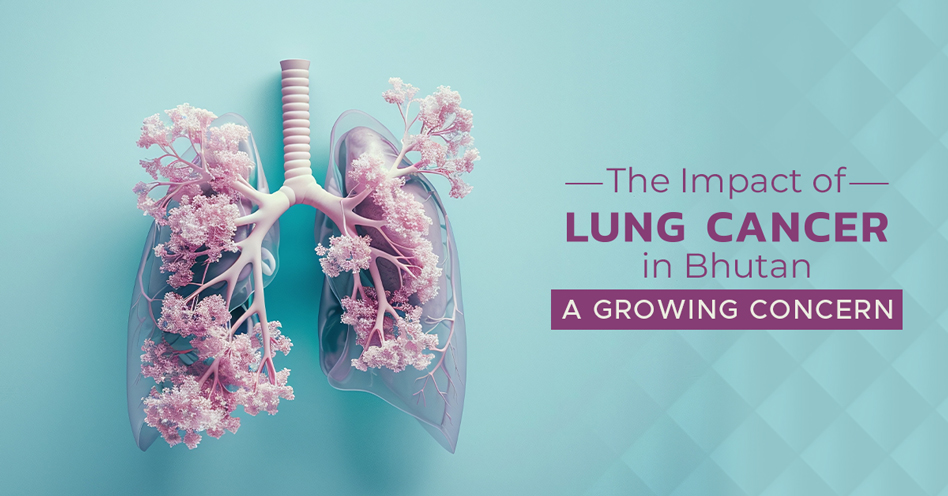Clean Living for a Healthy Future: Azista Bhutan Healthcare's Approach to Cancer Prevention
26 January, 2024

Introduction: Embracing Prevention in the Land of Gross National Happiness
Bhutan, nestled in the majestic Himalayas, is a country renowned for its breathtaking natural beauty and its unique philosophy of Gross National Happiness (GNH). This philosophy prioritises well-being and sustainability over purely material gain. At Azista Bhutan Healthcare, we share this commitment to a healthy and balanced life and believe that prevention is the cornerstone of good health.
Cancer is a complex disease with various contributing factors. While some risk factors, like genetics, are beyond our control, there are many modifiable lifestyle choices that can significantly impact our risk of developing cancer. In this blog post, we will explore Azista Bhutan Healthcare's approach to cancer prevention, drawing inspiration from Bhutan's unique culture and environment.
Bhutan's Clean Canvas: A Foundation for Healthy Living
Bhutan's pristine environment serves as a natural starting point for a discussion on cancer prevention. The country prioritises organic farming practices and environmental conservation, resulting in fresh, locally sourced food largely free from harmful pesticides and chemicals. At Azista Bhutan Healthcare, we understand the importance of diet in cancer prevention. We offer access to fresh, organic produce grown in harmony with nature, reflecting the values of Bhutan's GNH philosophy.
Diet and Cancer Risk: Making Informed Choices
Research consistently shows a strong link between diet and cancer risk. A diet rich in fruits, vegetables, and whole grains is associated with a lower risk of several cancers, while a diet high in processed foods, red meat, and unhealthy fats can increase the risk. Our team of nutritionists at Azista Bhutan Healthcare can guide you in making informed dietary choices to promote your overall health and reduce your risk of cancer. We offer personalised consultations to create a balanced and nutritious meal plan that caters to your individual preferences and dietary needs.
Beyond the Plate: A Holistic Approach to Prevention
A healthy lifestyle goes beyond just diet. Regular physical activity is another crucial factor in cancer prevention. Bhutan's emphasis on outdoor activities aligns perfectly with this principle. Hiking, biking, and spending time in nature are all encouraged in Bhutanese culture, and these activities offer a wealth of health benefits. Exercise helps maintain a healthy weight, boosts the immune system, and reduces inflammation – all factors that contribute to a lower risk of cancer.
Azista Bhutan Healthcare fully embraces this concept. Our serene location, surrounded by breathtaking mountain vistas, provides the perfect backdrop for enjoying the outdoors. We encourage our patients to engage in physical activities they find enjoyable, whether it's a gentle walk in our serene gardens or a more strenuous hike through the surrounding landscape.
Understanding Genetics and Modifiable Risks
While genetics play a role in some cancers, it's important to remember that most cancers are not solely caused by inherited genes. Even individuals with a family history of cancer can significantly reduce their risk by focusing on modifiable lifestyle factors like diet, exercise, and maintaining a healthy weight. At Azista Bhutan Healthcare, we acknowledge the role of genetics in cancer risk, but we also emphasise the power of prevention through healthy lifestyle choices.
Azista Bhutan Healthcare: Your Partner in Prevention
Here at Azista Bhutan Healthcare, we are committed to empowering you to take charge of your health and reduce your risk of cancer. We offer a range of services to support your preventive journey:
Nutritional Consultations: Our team of qualified nutritionists can help you develop a personalised plan for healthy eating that incorporates fresh, locally sourced ingredients and promotes optimal health.
Educational Resources: We provide easy-to-understand resources on cancer prevention, covering topics like diet, exercise, and healthy lifestyle habits.
Stress Management Techniques: We offer guidance on managing stress, which is a contributing factor to various health problems, including cancer. Techniques like meditation and yoga can be powerful tools for promoting relaxation and well-being.
Weight Management Programs: Maintaining a healthy weight is crucial for cancer prevention. We offer personalised weight management programs to help you achieve and maintain a healthy body mass index (BMI).
Early Detection Services: Early detection is a critical component of cancer prevention. We provide access to various screening tests that can help detect cancer at its earliest stages when treatment is most effective
Embrace a Healthier Future Today
Cancer prevention is not about fear; it's about empowerment. By taking a proactive approach to your health and making informed choices, you can significantly reduce your risk of developing cancer. At Azista Bhutan Healthcare, we are here to support you every step of the way. Let us guide you on a journey towards a healthier future inspired by the pristine environment and holistic philosophy of Bhutan.
Share :
Table of Contents
- Clean Living for a Healthy Future: Azista Bhutan Healthcare's Approach to Cancer Prevention
- Nature's Healing Touch: Complementary Therapies for Cancer Patients.
- Understanding Cancer Staging: A Vital Guide to Treatment Planning.
- Nature's Healing Touch: Complementary Therapies for Cancer Patients.
- Nature's Healing Touch: Complementary Therapies for Cancer Patients.
More from News
24 February, 2024
Clean Living for a Healthy Future: Azista Bhutan Healthcare's Approach to Cancer Prevention24 February, 2024
Nature's Healing Touch: Complementary Therapies for Cancer Patients.28 December, 2024
Understanding Cancer Staging: A Vital Guide to Treatment Planning.











